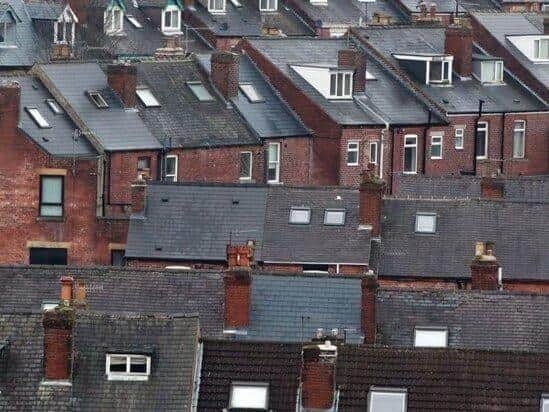Houses to be bought for Preston's Afghan refugees to give them permanent homes
and live on Freeview channel 276
As part of an agreement under the Local Authority Housing Fund (LAHF), the city council will be expected to acquire at least eight properties to house those Afghan families who remain in temporary “bridging accommodation”, such as hotels, following their arrival in Preston.
The city is one of many areas of the country which has welcomed to the UK some of the 24,000 people who have previously helped British armed forces in Afghanistan - and so had to flee their homeland after the Taliban regained power two years ago.
Advertisement
Hide AdAdvertisement
Hide AdPreston City Council has been given £756,000 under round 2 of the LAHF, after being awarded £655,000 in December last year from the first round of the programme. That initial allocation also saw the authority required to find eight dwellings, but on that occasion for both Ukrainian and Afghan refugees.


Using the latest tranche of funding, a ninth property must also be bought to provide temporary accommodation for anyone who the council is obliged to house locally, in order to reduce the use of bed and breakfasts.
The expectation is that local authorities work with registered housing providers, with the latter purchasing all of LAHF-backed properties, carrying out any necessary refurbishments and then managing them in the long term.
In Preston, only one operator - Community Gateway Association (CGA) - expressed an interest during round 1 and a meeting of the full council heard that the organisation had also agreed to deliver the second round of the scheme in the city.
Advertisement
Hide AdAdvertisement
Hide AdThe government grant funding equates to 40 percent of the total purchase price of suitable properties, plus £20,000 per home to cover refurbishment costs.
For Preston, that makes the rate per property £64,000 - based on median property prices in the city - before renovations are factored in.
The arrangement means that CGA has to provide the balance of the required funding from its own resources - at least £864,000 in total - plus the cost of any home improvements above £20,000.
As part of round one of the scheme, the size of the properties that each area was expected to acquire was stipulated - in Preston’s case, six two-bedroomed and two four-bed dwellings.
Advertisement
Hide AdAdvertisement
Hide AdNo such specifics have been set out for the second round, but Preston City Council’s cabinet member for communities and social justice Nweeda Khan told a meeting of the full council that Afghan refugees settling in cities like Preston were often “large families and they need large houses”.
To that end, she said, the authority had agreed with CGA that at least two of the eight latest properties to be acquired would be suitable to accommodate a large household.
A report to councillors noted that delivery timescales for both rounds of the LAHF were “extremely tight” - with the first round homes due to be purchased by 30th November and those financed under the second round by 29th March next year.
The government has indicated that it will still fund properties whose sales are completed after those deadlines, but the city council says that if the acquisition of the total number of funded dwellings ultimately proves impossible, a proportion of the cash will have to be returned to Whitehall.
Advertisement
Hide AdAdvertisement
Hide AdThe Department for Levelling Up, Housing and Communities claims that both rounds of the LAHF - £750m in total - will “provide a lasting affordable housing asset for the future”.
“The funding will reduce the impact of recent arrivals on existing housing pressures and in the longer term will provide a new and permanent supply of accommodation for local communities, increasing the number of homes in the wider social and affordable housing system,” its website says.